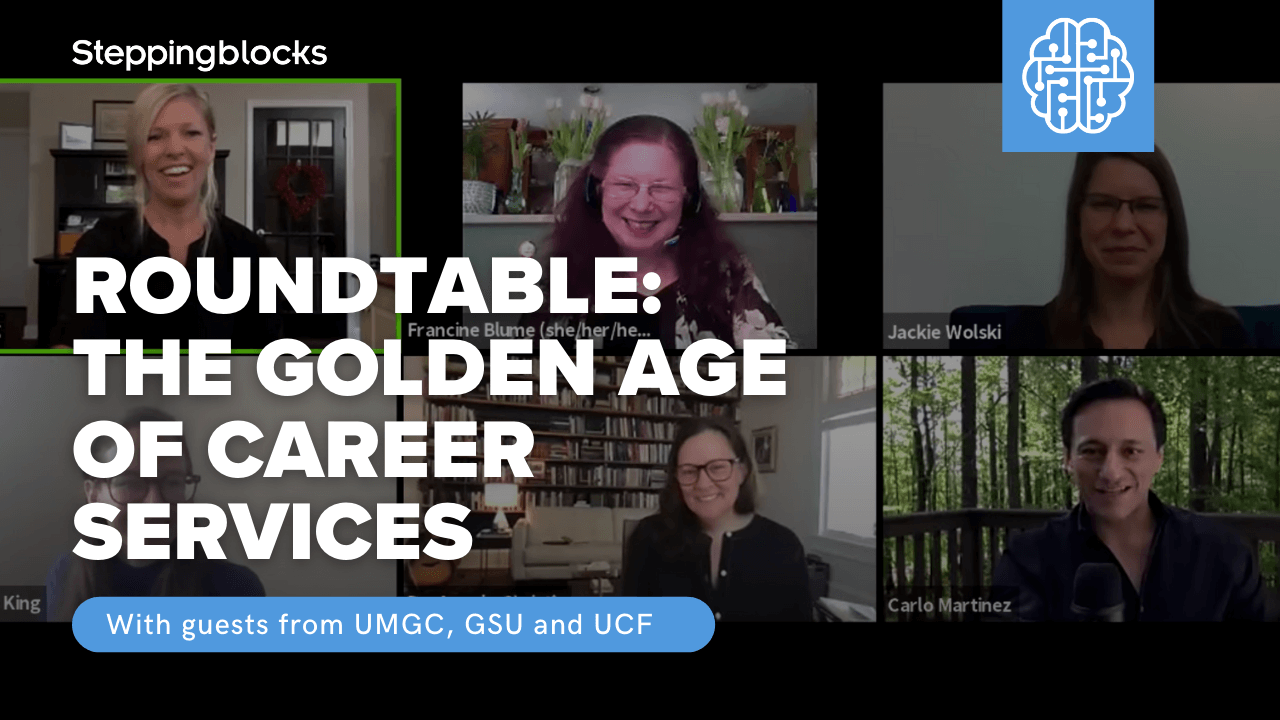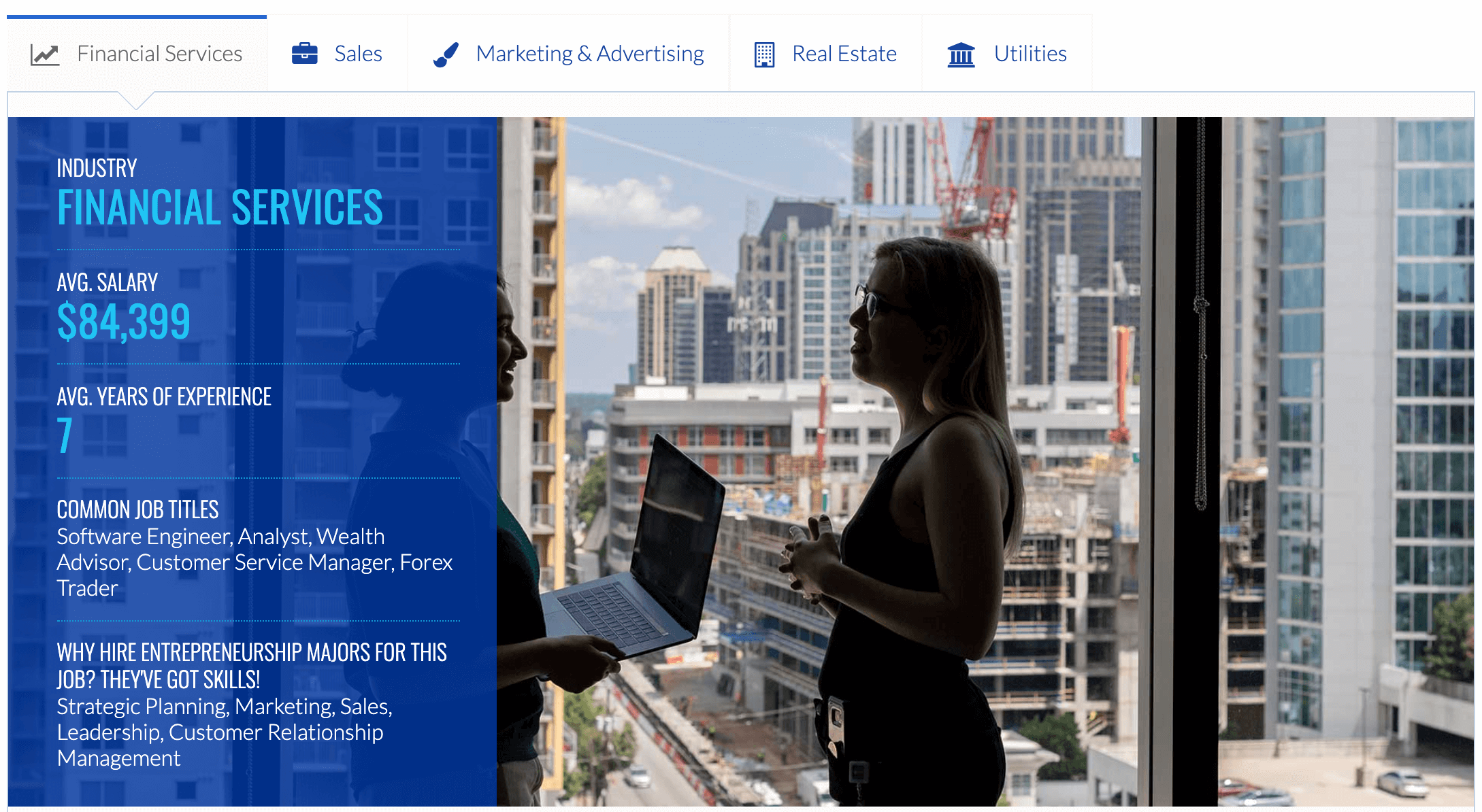Today's career services teams are rapidly evolving to reflect the student body and connect on a personal level. Those in positions related to career services realize they need to change their approach and integrate newer strategies to make meaningful connections with students and help streamline success in advising, coaching and outreach. Why?
Only 11% of employers strongly agree with Chief Academic Officers that students are prepared for the workforce.
- Strada-Gallup, 2017 College Student Survey
They attribute their uncertainty to a widening skills gap, a lack of collaboration and a deficit in knowledge for the position, company or industry.
This is evidence that college students need a modern career center willing to shift and meet the needs of the modern student. We sat down with some of the best in the field, across a variety of institutions, to share their stories of innovation during what has potential to become the Golden Age of Career Services.
Here's what they said.
Q. What is the importance of building a career advisement staff that looks like students?
Shared voice builds credibility and trust. Students are more likely to listen to someone who looks and sounds like them. Career services will benefit by creating a platform to bridge the gap between students and staff.
Take the University of Maryland Global Campus for instance. Their nontraditional student body has a unique set of needs. Nearly half of UMGC students are parents, more than 60 percent are military-affiliated and over 80 percent work full- or part-time. Traditional methods won't work with these nontraditional students.
Justin Nguyen from Declassified College suggests having a well-rounded team with both seasoned professionals and in-the-know Gen-Zers.
Q. How can career services reach out directly to students more effectively using alumni, offering career stories they can relate to while enrolled at a university?
Some universities are working to coordinate outreach tactics that work within the classroom as a curriculum program in conjunction with career services programs.
Within a classroom setting, lessons tied to a major can be positioned in the context of real work. Partner with alumni to share their stories of success — and failure — to students working toward a degree in the same field.
Q. How can career services use alumni outcomes data to populate external pages for prospective, new and existing students?
Using alumni outcomes data to build pages related to specific majors helps guide students and prepare them to transition from high school to college and career.
Introducing this information when students enroll accelerates time to major declaration by providing key insights into real outcomes at both the national and institutional level. Students will answer these questions and more:
- What industries and companies hire my degree?
- What are the most common job titles in my field?
- How much can I expect to earn after 5 years?
The purpose is to demonstrate realistic career paths students can work toward and to enlighten students about pathways they may have been unaware of. Georgia State University has partnered with Steppingblocks to build data-driven pages by major to support their mission of creating a future-flexible workforce. Read their full story here.
Q. Why should you integrate career services into the classroom?
Meet students where they are. Co-curricular and extra-curricular activities are the standard for career services, but are they well-attended? Students are busy, and asking them to volunteer for an assignment that doesn't count toward their GPA is unlikely to trend. Simple activities can be integrated into the classroom and required. UMGC, for instance, assigns their students this personality assessment.
Integrating career services into the classroom ensures students are aware of the career center. It will also lead to increased traffic outside of the classroom and has the added benefit of buy-in from professors, a trusted source for students.
Q. How can a virtual career center make resources more accessible?
In 2020, virtual career centers were not optional. They were necessary for students to maintain access to career resources and coaching. Virtual career labs, resume workshops and mock interviews were possible for universities who had online infrastructures in place. Here's a look at the University of Central Florida's virtual career center:
.png?width=1784&name=Screen%20Shot%202021-03-23%20at%202.26.29%20PM%20(1).png) Some virtual career centers even hosted online interviews between students and potential employers to bridge the gap and ensure everyone had the opportunity to find employment during and after the pandemic.
Some virtual career centers even hosted online interviews between students and potential employers to bridge the gap and ensure everyone had the opportunity to find employment during and after the pandemic.
Is your career services center ready to make the shift?
The Golden Age of Career Services is here for the colleges and universities willing to make the shift: Hire younger for a well-rounded team, tap into your alumni outcomes data and make your services convenient to access. Join the Steppingblocks community of super users for a lifetime of student success with 24/7 access to over 100 million real career paths. Try it for free today.


.png)




